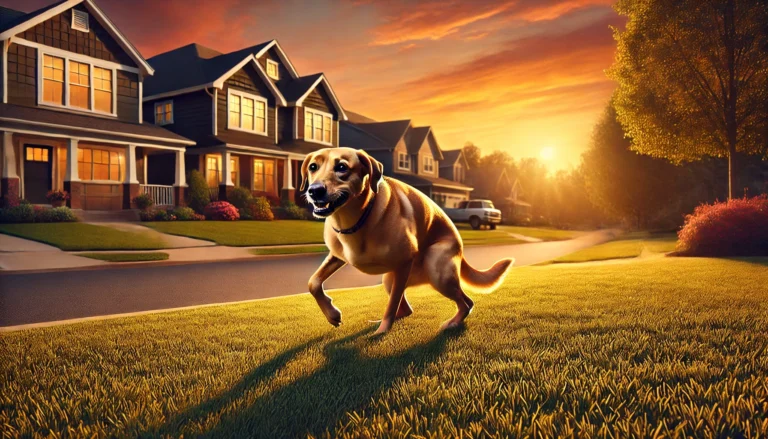Great Pyrenees Dog Breed Health and Care: An In-Depth Guide

Introduction to Great Pyrenees Dog
The Great Pyrenees, also known as the Pyrenean Mountain Dog, is a majestic breed known for its gentle temperament and impressive size. Originally bred to guard livestock, these dogs are valued both as working dogs and loyal companions. This comprehensive guide will delve into the essential aspects of caring for a Great Pyrenees, from understanding their health concerns to managing their grooming needs and ensuring their well-being through proper training and socialization.
Understanding the Great Pyrenees
The Great Pyrenees is a breed characterized by its calm and patient nature, often described as majestic and dignified. Their most distinctive features include their large size, powerful build, and beautiful white coats, although they can also display markings in shades of gray, red, or tan.
Physical Characteristics
- Size: Males typically weigh between 100 and 160 pounds, while females are slightly smaller, ranging from 85 to 115 pounds. They stand up to 32 inches at the shoulder.
- Coat: The breed features a double coat, with a dense, woolly undercoat for insulation and a long, flat, and thick outer coat that is weather-resistant.
Temperament
- Behavior: Great Pyrenees are known for their protective nature, making them excellent guard dogs. They possess a deep bark and are always alert, especially at night.
- Personality: Despite their size, they are known for being gentle with children and other animals, making them excellent family pets. However, their strong protective instincts require careful management to ensure they do not become overly territorial.

Health Concerns in Great Pyrenees
Like all breeds, the Great Pyrenees has specific health vulnerabilities that owners should be aware of.
- Bone and Joint Issues: Common in many large breeds, conditions like hip dysplasia and patellar luxation are prevalent in the Great Pyrenees. Regular vet check-ups and keeping them at a healthy weight can help manage these risks.
- Bloat: Also known as gastric torsion, bloat is a life-threatening condition that can affect large breeds. Feeding smaller, more frequent meals can help reduce this risk.
- Cancer: Unfortunately, the breed is also predisposed to certain types of cancer, including bone cancer.
- Skin Conditions: Their thick coat can hide skin conditions, so regular grooming and skin checks are crucial.
Diet and Nutrition
Feeding your Great Pyrenees the right diet is crucial for maintaining their health.
- Balanced Diet: Ensure their food is high-quality and appropriate for their age, weight, and activity level. Large breed formulas are typically recommended.
- Feeding Practices: To combat the risk of bloat, avoid feeding your dog a large meal once a day. Instead, opt for smaller, more frequent meals and avoid vigorous exercise around meal times.
Exercise and Training
Despite their size, Great Pyrenees do not require excessive exercise but do need regular, moderate exercise to maintain their health and prevent boredom.
- Exercise Needs: Daily walks and opportunities to roam in a securely fenced area are sufficient. Their exercise needs are not high, but they do enjoy being active.
- Training: Early socialization and obedience training are crucial. This breed can be independent and sometimes stubborn, so consistent, patient training is necessary.
Grooming and Care
Their beautiful coat requires regular maintenance to keep it in good condition.
- Regular Brushing: Brushing several times a week helps prevent tangles and mats.
- Bathing: Bathe your Great Pyrenees only when necessary (every few months) to avoid stripping natural oils from their coat.
- Seasonal Shedding: They experience heavy shedding, especially in the spring. More frequent grooming during these times will help manage the amount of hair in your home.
Living Conditions
Great Pyrenees are best suited to environments where they have plenty of space to roam.
- Housing: While they are adaptable to various living situations, they thrive in homes with large, securely fenced yards where they can patrol and exercise.
- Climate: Their thick coat makes them well-suited to colder climates, though they can adapt to warmer environments with proper shade and hydration.
Special Considerations
- Guarding Behavior: Training to manage their guarding instincts is essential so that it does not turn into aggression or overprotectiveness.
- Socialization: Expose them to various people, animals, and environments early to ensure they grow up to be well-rounded dogs.
do you know
Discuss the basics of a dog’s digestive process, emphasizing how observing a dog’s pooping habits can provide insights into their overall health.
Conclusion
Owning a Great Pyrenees can be a deeply rewarding experience. These gentle giants bring a lot of love and a bit of challenge into your life. By providing them with the care, management, and love they need, you ensure that your Great Pyrenees is not only a loyal guardian but a beloved member of your family. Regular veterinary care, proper nutrition, adequate grooming, and consistent training are all key to their long-term health and happiness.
Is Great Pyrenees a good family dog?
Yes, the Great Pyrenees is a good family dog, known for its protective and gentle nature, making it excellent around children.
Are Great Pyrenees difficult dogs?
They can be, due to their independent and sometimes stubborn nature, which requires consistent training and an understanding owner.
Are Great Pyrenees high maintenance dogs?
Yes, they are considered high maintenance due to their extensive grooming needs, exercise requirements, and the need for ongoing training.
Do Great Pyrenees bark a lot?
Yes, the Great Pyrenees is known to bark a lot. They are vigilant guardians and tend to bark to alert or when they perceive a threat.
Are Great Pyrenees highly intelligent?
Yes, they are highly intelligent but also independent, which can sometimes be mistaken for a lack of intelligence.
Why are Great Pyrenees so cheap?
The cost can vary widely, but they may be less expensive due to overbreeding or a lack of demand in certain areas.
Can a Great Pyrenees be a house dog?
Yes, while they are large and need space, they can adapt to house living provided they get enough exercise and mental stimulation.
What is special about Pyrenees?
Their combination of intelligence, gentleness, and protective instincts makes them unique, alongside their striking appearance and loyalty.
Are Great Pyrenees fearless?
Yes, they are known for their fearless and protective nature, often used as guard dogs for livestock and homes.






